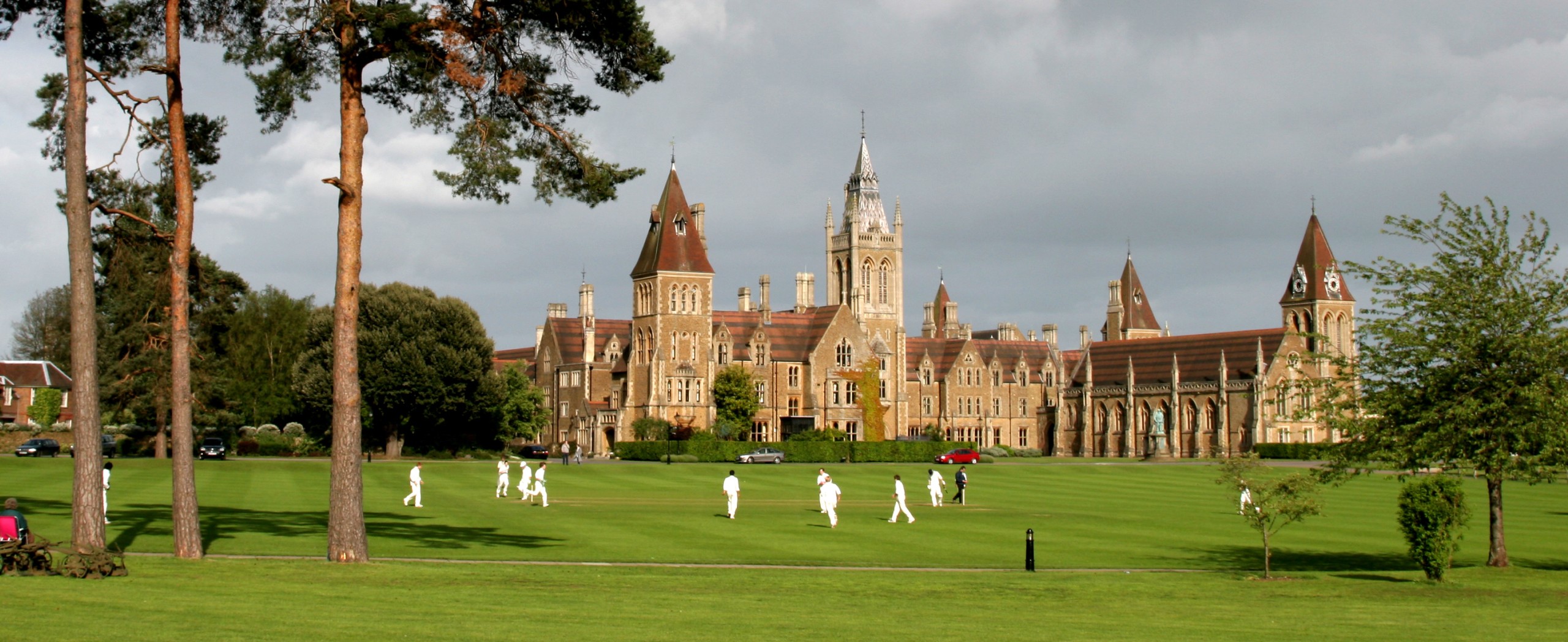Download the Index
Our latest independent research on how parents and private schools are managing rising fees
Download PDFPremium Credit has been experiencing strong growth1 in the amount of money it lends through it's School Fee Plan (SFP) to parents looking to spread the cost of their children’s school fees.
With fees on average rising by between 3% and 4% a year2, the growing demand for SFP makes sense. Future growth potential looks strong as our research3 with private school parents shows 52% would consider using such a service.
These are figures which highlight the growing interest in school fees planning which helps parents finance their children’s independent school fees by allowing them to spread the cost rather than paying a lump sum each term. Parents apply to open their account online before the beginning of any term and if the application is approved, the parents and the school are notified with the full payment sent to the school at the start of each term.
The vast majority of our customers who use SFP do so to benefit from spreading the cost of school fees over 12 monthly payments, as opposed to making three payments a year for each term, and not because they cannot afford the fees. However, it is clear that parents with children at private schools can struggle to afford the fees and schools are aware of the issue and its impact on their businesses.
In addition the sector faces the potential application of VAT at 20% to fees under proposals from the Labour Party which could form the next Government following the upcoming General Election in the UK.
Last year Premium Credit commissioned research with private school headteachers, bursars and finance managers4+5 as well as current and past private school parents to help better understand the situation in the sector.


Our latest independent research on how parents and private schools are managing rising fees
Download PDFThis is our second report6 looking at the financial pressures on private schools and parents. The findings from this year’s study are below.
91% of headteachers, bursars and finance managers believe that 10% or more of their pupils would be at risk of leaving their school if VAT is applied to fees - the Labour Party has said it would do this if elected to Government
The report outlines this data in more detail and should prove interesting for independent schools, as well as current and future independent school parents.

Parents are increasingly looking to spread the cost of private school as fees continue to increase, our figures show.
The total lent through our Schools Fee Plan (SFP) was 24% higher last year than in 2021 and the average amount borrowed increased by 17% over the same period.
Total lending increased by 10% last year compared to 2022 and the amount of funding provided through SFP in the first three months of this year is 9% higher than the same period last year.

The number of parents using SFP last year was 5%* higher than in 2022 while the average amount of funding is now around £20,300.
The rising cost of independent schools shows why - private school fees are rising at between 3% and 4% a year with average day school fees around £16,374 a year and boarding schools around £39,000 a year. Day fees at boarding schools are around £21,500 a year.
"The cost of independent education has never been higher, and fees have been rising by around 3% to 4% a year as schools invest to further enhance facilities and teaching. Parents clearly value the education their children receive and are increasingly looking to spread the cost of their children’s school fees. We have seen a huge increase in the number taking out our School Fee Plan, which enables them to do this."

Private schools remain popular with parents in the face of rising costs but Labour’s plans to apply VAT to fees would make it unaffordable for many, our research found.
The study found 46% of parents with children aged under five hope to send them to private school and 17% of parents with children currently at state schools are thinking of sending them to private school instead.
Last year’s study found 39% of parents with children aged under five said they hope to send them to private school and nearly one in five (19%) of parents with children currently at state schools were thinking of sending them to private school instead.
However, proposals by the Labour Party to apply VAT to fees if they win the next General Election would make private school unaffordable for 28%, the research found.
Just 40% of parents with under-fives hoping to send their children to private schools questioned would do so when they start school, the study found, with almost all (94%) waiting until their children are older saying the potential additional cost puts them off.
Around 59% of parents with children at state schools considering sending them to private schools say the main reason for doing so is that they believe the quality of education would be better, while 29% say it is because they believe their children are falling behind academically.
Around 30% say one of the reasons for choosing a private school is because their children have special educational needs which they believe would be better met at a private school. Around one in seven (14%) say their children are unhappy at their current state school.
The possible application of VAT to school fees would not deter all the parents of under-fives and state school parents considering private schools for their children. Around 37% questioned say they would look for a cheaper private school while 27% would ask family for help with fees and 27% would look for a better paid job.
| Reasons for switching children to private from state schools | Percentage of parents with children at state schools who are considering switching them to private schools who give this reason for doing so |
|---|---|
| Quality of education would be higher | 59% |
| They have special educational needs which I believe would be better met in a private school | 30% |
| Worried children are falling behind academically | 29% |
| Don’t feel they are being pushed enough | 29% |
| They are not happy at their current state school | 14% |
"Parents considering sending their children from reception or switching them from state schools need to plan ahead. Their options for paying fees should include looking at the possibility of paying a small annual charge in order to spread the cost and they should ask schools if they offer such plans when considering where to send their child."

Our research with headteachers, bursars and finance managers at fee-paying private schools in the UK reveals 91% believe that 10% or more of their pupils would be at risk of leaving their school if VAT is applied to fees because their parents would not be able to afford to pay them. Some 35% believe between 15% and 30% could be at risk of leaving.
Many private schools would look to cover some of the increase in fees resulting from VAT being applied to them. Only one in ten (10%) of the headteachers, bursars and finance managers interviewed said their schools would pass on the full 20% increase. Some 52% of those interviewed said they would pass on 50% or less of the VAT increase.
| Percentage of the VAT applied to private school fees that would be passed on to parents | Percentage of headteachers, bursars and finance managers at private schools that said their school would pass this amount of the VAT applied to school fees on to parents |
|---|---|
| All of the VAT applied (20%) | 10% |
| Between 75% and 99% of the VAT applied | 12% |
| Between 50% and 75% of the VAT applied | 26% |
| Between 25% and 50% of the VAT applied | 43% |
| Between 10% and 25% of the VAT applied | 8% |
| Up to 10% of the VAT applied | 1% |
Not passing on the full VAT increase to parents in higher fees and taking some of the financial hit from this themselves, would mean many schools would look to make cutbacks as a result.
Two thirds of private school headteachers, bursars and finance managers interviewed said they would look to reduce staff numbers at their school and use the money saved to reduce the impact of VAT on school fees, and one in two (50%) said they would invest less in the infrastructure of the school.
"Schools fees are already substantial, around £16,374 a year for day school children, and around £39,000 for those that board. Increasing these by 20% as a result of applying VAT would place a financial burden on many parents. However, our research shows that many private schools already have plans in place to reduce the full impact of this if it is introduced. We would also expect to see more parents using schemes such as our School Fee Plan to spread the cost of fees over a 12 month period."
| Action taken to reduce the impact of VAT being applied to school fees | Percentage of headteachers, bursars and finance managers at private schools that said their school would do this to save money and reduce the impact of VAT being applied to school fees on parents |
|---|---|
| Reduce headcount/recruitment | 66% |
| Cut back on investing in the infrastructure of the school | 50% |
| Reduce salary increases | 44% |
| Reduce expenditure on school equipment | 21% |
Nearly half of private school parents believe affording fees will become tougher in the year ahead and they are increasingly looking for ways to make the cost more manageable, our research found.
Nearly a fifth (17%) believe affording fees will become much harder while 27% believe paying fees will become slightly harder. Just one in five (20%) expect paying fees will become easier in the year ahead.
That’s an improvement on research last year which found 59% believed affording fees would become tougher in the year ahead with 31% saying it would become much harder. Just one in ten expected paying fees would become easier.
On average parents are spending 15% of their income on school fees but nearly a quarter (23%) say a fifth or more of their income goes on these. More than half (51%) who have struggled to pay fees have discussed their issues with the school.

The rising cost of school fees is a slightly bigger factor than the cost of living with 63% blaming increases at schools compared with 58% blaming the cost of living.
Increasingly parents are looking for other ways to afford fees – more than half (52%) of parents say they would consider a scheme which enables them to spread the cost in return for a small charge. Around 57% who do not pay fees monthly currently say they would consider switching to monthly payments.
Around half (53%) questioned pay fees every term while 7% pay annually and 26% pay monthly with 9% paying a lump sum upfront and 5% preferring to not answer.
Among those struggling to pay currently, nearly two out of five (38%) say they are planning to take children out of private school with another 41% thinking about withdrawing them.
The possible application of VAT to school fees would make private school unaffordable for one in three (33%) of parents questioned while 36% say they would look for a cheaper alternative private school and 20% say asking family for financial help would be an option.
"Parents with children at private schools are increasingly looking for solutions which will make the cost more affordable. It is clear that many are struggling currently and expect the financial strain to increase."
"Spreading the cost of their children’s school fees for a small fee through funding plans can make financial sense and ease the strain for parents while enabling schools to help parents."
Our research with headteachers, bursars and finance managers at fee-paying private schools in the UK reveals an increase in those seeing parents struggling to pay school fees.
Around 17% of those interviewed believe that over 15% of their parents are currently struggling to pay their school fees – last year the corresponding figure was 12%, and four years ago it was 6%.
It is little wonder therefore that 87% of the headteachers, bursars and finance managers at fee-paying private schools interviewed said they are spending more time chasing parents for payment of fees.
The issue could become worse because 67% of those interviewed believe school fees will rise slightly faster over the next three years than their historic rate, and a further 15% expect them to rise at a significantly greater rate.

Nine out of ten (89%) of those interviewed said that their private school is looking at offering parents schemes that will allow them to spread the cost of their children’s fees.
Currently, 76% of private school headteachers, bursars and finance managers interviewed say that 10% or more of the parents of their pupils are on special repayment terms allowing them to spread the cost of their school fees, and some 23% say that over 15% of parents are on these. A year ago the corresponding figures were 50% and 15% respectively, and four years ago they were 39% and 13%.
"Given the current cost of living crisis it is perhaps not surprising to see private schools reporting a rise in parents struggling to pay their children’s school fees on time. However, many schools are looking for ways to help parents and carers spread the cost of fees, much as you would with a mortgage or personal loan."
"The vast majority of our parents who use SFP do so to benefit from spreading the cost of schools fees over 12 monthly payments, as opposed to making three payments a year for each term, and not because they can’t afford the fees."
The research found that over the past three years, 74% of schools have had to delay or cancel investing in new facilities and hiring staff because of delays in parents and carers paying their children’s fees.

In terms of which areas private schools cancelled or suspended investing in because of late fee payments, 65% cited the hiring of support staff, and this was followed by 50% who said sports equipment, and 45% who cited teaching materials, such as books.
Nearly four out of ten (38%) said they had delayed hiring teachers because of issues around school fees not being paid.
| Areas of investment | Percentage of headteachers, bursars and finance managers at private schools who said their schools had delayed or suspended investing in this area over the past three years because of delays in collecting fee |
|---|---|
| Hiring of support staff | 65% |
| Sports equipment | 50% |
| Teaching materials e.g. books | 45% |
| Hiring of teachers | 38% |
| IT equipment | 31% |
| New facilities e.g. sports facilities | 12% |

More than one in three parents with children at private schools rely on family help to afford the fees. Grandparents are the biggest source of funding, our research shows.
The study found 35% rely on financial support from family with grandparents the biggest source of funding. Around 69% say grandparents help with some of the fees while 39% say some help comes from aunts and uncles.
The family support helps but parents still find it hard to afford fees, the research found. Around two out of three (63%) parents who have had or currently have children at private schools say they regularly or sometimes struggled to afford fees.
The impact of the financial struggles is long-lasting – more than half (56%) say paying for private school has delayed their retirement plans with 18% saying they have delayed retirement by five or more years as a result. Around 4% say they will never be able to retire.
Our study outlines other cutbacks and choices they have made and are making. Around 31% of parents who have children at private schools or have had in the past say they take fewer or cheaper holidays, while 20% say they have taken on more than one job and 33% have worked overtime to help pay the fees.
Nearly one in 12 (8%) say they have stayed in unhappy relationships to avoid the cost of divorce or separation and 11% have downsized their home to release cash to pay for school fees.
| How current or past parents of children at independent schools afford fees | Percentage who have done this |
|---|---|
| Worked overtime | 33% |
| Taken fewer holidays or cheaper holidays | 31% |
| Eaten out less | 29% |
| Taken on more than one job | 20% |
| Agreed repayment plan with school to afford fees | 16% |
| Downsized our home | 11% |
| Stayed in an unhappy relationship to avoid divorce or separation costs | 8% |
| Remortgaged | 6% |
"The rising cost of private education means many parents have to make a range of sacrifices and that includes grandparents who are using their cash to help out with fees."
"It is worrying to see so many saying they have delayed retirement plans with some saying they can never afford to retire. There are alternatives and spreading the cost of their children’s school fees for a small fee through funding plans can make financial sense and ease the strain for parents."
Current parents and past parents and the schools themselves are well aware of the need for financial planning when sending children to independent schools.
The rising cost of independent schools shows why - private school fees are rising at between 3% and 4% a year with average day school fees around £16,374 a year and boarding schools around £39,000 a year. Day fees at boarding schools are around £21,500 a year.
The possible application of VAT to school fees will have a major impact on parents and schools with 91% of headteachers, bursars and finance managers at fee-paying private schools in the UK estimating that 10% or more of their pupils would be at risk of leaving their school if VAT is applied to fees.
However, demand for private schools remains strong and current and past parents are willing to make sacrifices in order to fund their children through school.

With the general rise in the cost-of-living and the cost of private education, the pressure to make schools fees more manageable is increasing. This is reflected in the huge growth we have seen in the number of parents taking out plans with us to spread the cost of their children’s education. For many, it makes sense to spread this expense, even if they can afford to make the payments every term.
Accessing credit and credit cards in particular is not as easy as it was. For over 25 years, School Fee Plan has helped parents finance their children’s independent school fees by allowing them to spread the cost rather than paying a lump sum each term. It is a convenient and manageable way for parents to pay for independent school fees and extras such as music tuition and trips.
We are already seeing strong growth in demand and expect that to continue while fees increase and demand for private schools continues.
Premium Credit is a leading provider of insurance premium finance and a range of annually charged services, including tax, regulatory and accountancy fees, sports season tickets, memberships and school fees in the UK and Ireland. Each year, we lend more than £5 billion to almost three million customers through a network of three thousand partners. We are multi award winning and the only premium finance provider accredited by BIBA and Brokers Ireland.
"School Fee Plan offers a valuable service to our association members which helps parents spread the cost of school fees. Their Independent School Index provides much needed insight into the economy and the impact it is having on how parents from across the UK pay for their children’s school fees."
(1) Premium Credit’s analysis of its own data
(2) isc_census_2023_final.pdf
(3) Independent research conducted by Viewsbank online among 986 parents including 301 whose children currently attend or have attended private schools in the UK between March 25th and April 2nd 2024
(4) Independent research conducted by Viewsbank online among 885 parents including 197 whose children currently attend or have attended private schools in the UK between May 24th and 26th 2023
(5) Premium Credit commissioned market research company Pureprofile to conduct research with head teachers, bursars and finance managers at fee paying schools in the UK. The research was conducted online during May 2023
(6) Premium Credit commissioned market research company Pureprofile to conduct research with 100 head teachers, bursars and finance managers at fee paying schools in the UK. The research was conducted online during March 2024
*Following a review, this number has replaced the previously published 2 year growth number quoted in the May 2024 version.

Our latest independent research on how parents and private schools are managing rising fees
Download PDF